Laboratory tests have confirmed meningococcal disease as the cause of death in a 25 year old woman in the New England region. The young woman collapsed at home on Saturday, September 22 and was taken to hospital by ambulance, but was unable to be revived.
Public health physician, Dr Tony Merritt expressed the District’s condolences.
“This is a tragic event and our sympathies are with the young woman’s family at this very difficult time,” Dr Merritt said.
This is the eighth confirmed case of meningococcal disease in the Hunter New England Local Health District this year and follows confirmation of meningococcal infection in a child currently being cared for in a different New England hospital. The child is in a stable condition.
“While we await further test results, we do not believe these two cases are linked or that either are related to previous cases in the District,” Dr Merritt said.
“Clearance antibiotics have been prescribed to close contacts of both patients to eradicate any meningococcal bacteria they may be carrying and prevent further transmission.
“Meningococcal disease can occur at any time of year, but we do typically see a peak in cases in spring following the winter flu season. Most cases occur in infants, young children, teenagers and young adults, although people of any age can be affected.”
This is a tragic event and our sympathies are with the young woman’s family at this very difficult time.
Dr Tony Merritt
Meningococcal infection does not spread easily. It is spread by secretions from the nose and throat of a person who is carrying the bacteria and close and prolonged contact is needed to pass it on.
Meningococcal disease usually begins with the sudden onset of fever, often with headache, nausea and drowsiness. Neck stiffness, dislike of bright lights and a rash of reddish-purple spots or bruises may develop rapidly. Babies with the infection may be irritable, not feed properly and have an abnormal cry.
Since 1 July this year, the Australian Government has expanded the protection offered to infants under the National Immunisation Program to include meningococcal A, W and Y disease, in addition to the meningococcal C protection that has been offered since 2003.
In addition, the NSW Government has funded meningococcal ACWY vaccine for older adolescents in schools since 2017 in response to an increase in cases of meningococcal W in recent years. A single free meningococcal ACWY vaccine was offered to high school students in Years 11 and 12 in 2017 and Years 10 and 11 in 2018. The Federal Government has announced funding to continue this program.
People aged 15-19 years who have not received the ACWY vaccine via the school program can visit their general practitioner to receive a free vaccine.
The NSW Government has invested $17 million in the Meningococcal W Response Program and over 200,000 teenagers have been vaccinated with the ACWY vaccine since the program was introduced.
SOURCE: Moree Champion
